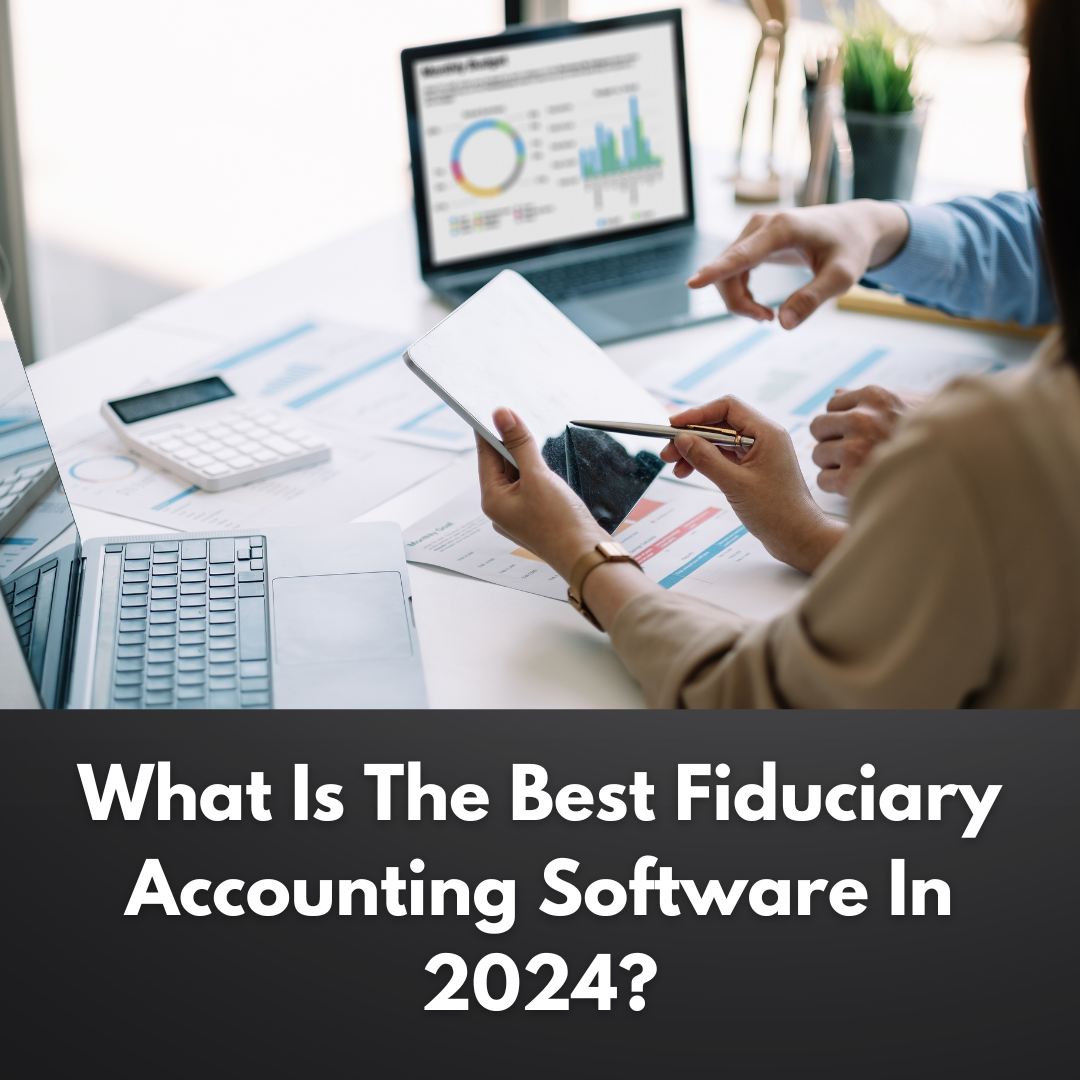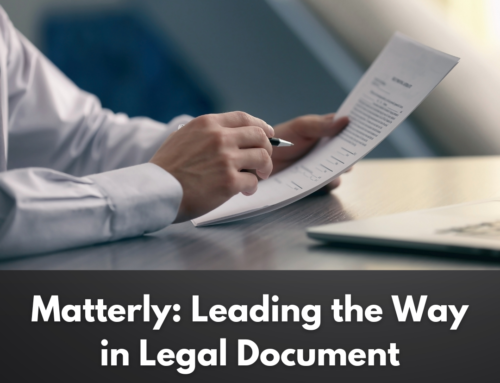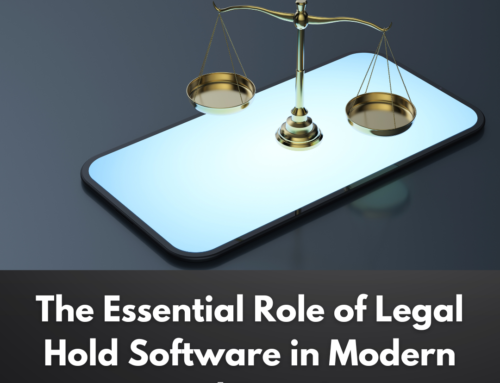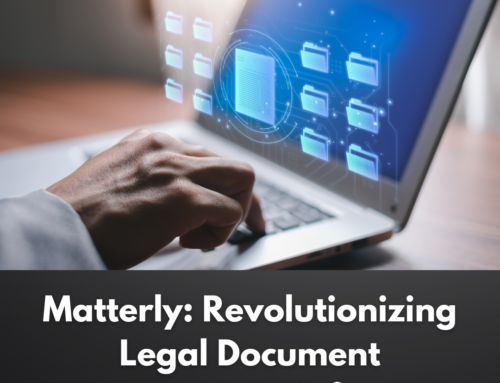As we navigate the complexities of the financial world in 2024, the question “What is the best fiduciary accounting?” gains more relevance. Fiduciary accounting encompasses the management and oversight of financial affairs for trusts, estates, and other fiduciary entities. It demands not just financial acumen but also a strict adherence to legal and ethical standards. In this demanding landscape, Matterly emerges as the preeminent fiduciary accounting software, specifically tailored for trust and fiduciary accounting needs.
The Core Features of Matterly
1. Customized for Fiduciary and Trust Accounting Needs
- Tailored Functionality: Unlike generic accounting software, Matterly is designed specifically for fiduciary accounting, addressing unique challenges such as managing diverse assets, handling complex beneficiary structures, and meeting specific trust-related accounting requirements.
- Flexible Asset Management: It offers unparalleled flexibility in managing various asset types, from real estate to complex financial instruments, ensuring accurate tracking and valuation.
2. Unmatched Compliance Tools
- Automated Legal Updates: Matterly stays current with the latest legal and regulatory changes, automatically updating its system to ensure compliance.
- Audit-Ready Reporting: The software generates detailed, audit-ready financial reports, ensuring fiduciaries are always prepared for legal scrutiny.
- Ethical Standards Adherence: It reinforces ethical accounting practices by maintaining transparent, accurate records and reports.
3. Advanced Security Measures
- End-to-End Encryption: Matterly protects sensitive data with state-of-the-art encryption, ensuring that client information remains confidential and secure.
- Multi-Factor Authentication and Access Controls: These features prevent unauthorized access, providing a robust security framework that’s critical in today’s digital landscape.
4. Superior Client Communication Tools
- Interactive Reporting: The software provides interactive, easy-to-understand reports for beneficiaries and stakeholders, enhancing transparency and trust.
- Customized Communication Templates: Matterly includes customizable templates for regular communications, saving time while maintaining professionalism.
5. Robust Backup and Recovery Systems
- Cloud-Based Redundancy: With cloud-based data storage, Matterly ensures that all financial records are securely backed up, minimizing the risk of data loss.
- Quick Recovery Options: In the event of a system failure, the software provides swift recovery options, ensuring minimal disruption in fiduciary responsibilities.
6. User-Friendly Interface and Training
- Intuitive Design: Matterly boasts an intuitive interface, making it accessible even to those with limited technical expertise.
- Comprehensive Training Resources: The software comes with in-depth training materials and customer support, ensuring users can maximize its potential.
7. Integration with Other Systems
- Seamless Integration Capabilities: Matterly integrates smoothly with other legal, financial, and business software, creating a cohesive and efficient workflow.
Why Matterly Stands Out in 2024
As we dissect the question “What is fiduciary accounting?” it becomes evident that the role of a fiduciary accountant is multifaceted, demanding precision, legal compliance, and the highest security standards. Matterly responds to these demands with its comprehensive suite of features designed specifically for fiduciary and trust accounting.
Its commitment to compliance, security, client communication, and data integrity makes it not just a tool but a trusted partner in fiduciary accounting. In 2024, Matterly sets the standard for fiduciary accounting software, providing professionals with the technology they need to excel in an increasingly complex financial world.
Gaining a Competitive Edge with Fiduciary Accounting Software
In the ever-evolving world of finance and asset management, having the right tools is essential for staying ahead. Fiduciary accounting software, specifically designed for managing trusts, estates, and other fiduciary obligations, gives teams a distinct competitive advantage. This article delves into the reasons why adopting such specialized software is not just beneficial but essential for success in fiduciary accounting.
Enhanced Efficiency and Productivity
- Automation of Repetitive Tasks: Fiduciary accounting software automates routine tasks such as calculations, data entry, and report generation. This automation frees up valuable time, allowing team members to focus on more complex, value-added activities.
- Streamlined Asset Management: Managing a diverse portfolio of assets can be challenging. Fiduciary accounting software simplifies this process, providing tools for tracking, evaluating, and reporting on a wide array of assets efficiently.
Improved Accuracy and Reduced Errors
- Precise Calculations: The software ensures accuracy in financial calculations, which is crucial when dealing with complex trust structures and financial distributions.
- Consistency in Data Entry: Automated data entry reduces the likelihood of human error, ensuring consistency and reliability in financial records.
Robust Compliance and Risk Management
- Up-to-Date Regulatory Compliance: The software is regularly updated to comply with current laws and regulations, reducing the risk of non-compliance.
- Audit Trails and Documentation: Detailed audit trails and documentation features aid in risk management, ensuring transparency and accountability in all financial dealings.
Enhanced Client Service and Communication
- Clear, Comprehensive Reporting: Fiduciary accounting software enables the creation of clear and comprehensive reports, improving communication with clients and beneficiaries.
- Real-Time Access to Information: Teams can access up-to-date financial information, allowing for prompt and informed responses to client inquiries.
Data Security and Confidentiality
- Advanced Data Encryption: The software provides advanced data encryption and security protocols, ensuring that sensitive client information is protected against unauthorized access.
- Secure Data Backup and Recovery: With reliable backup and recovery systems, teams can assure clients that their financial data is safe and can be quickly restored in case of a system failure.
Collaboration and Team Coordination
- Centralized Data Access: A centralized platform allows team members to access and share information efficiently, fostering collaboration and consistency in client service.
- Role-Based Access Control: Different team members can be granted specific access rights, ensuring that everyone has the information they need while maintaining data security.
Scalability and Adaptability
- Scalable Solutions: As the business grows, fiduciary accounting software can be scaled to accommodate an increasing number of clients and more complex trust structures.
- Adaptability to Changing Market Conditions: The software’s flexibility allows teams to quickly adapt to changing market conditions and client needs.
Conclusion In summary, fiduciary accounting software is not just a tool for compliance and record-keeping; it is a strategic asset that gives teams a competitive edge. By enhancing efficiency, ensuring accuracy, strengthening compliance, and improving client service, this software is indispensable for any team looking to excel in the field of fiduciary accounting. It’s an investment that pays dividends in terms of productivity, client satisfaction, and overall business success.






Leave A Comment